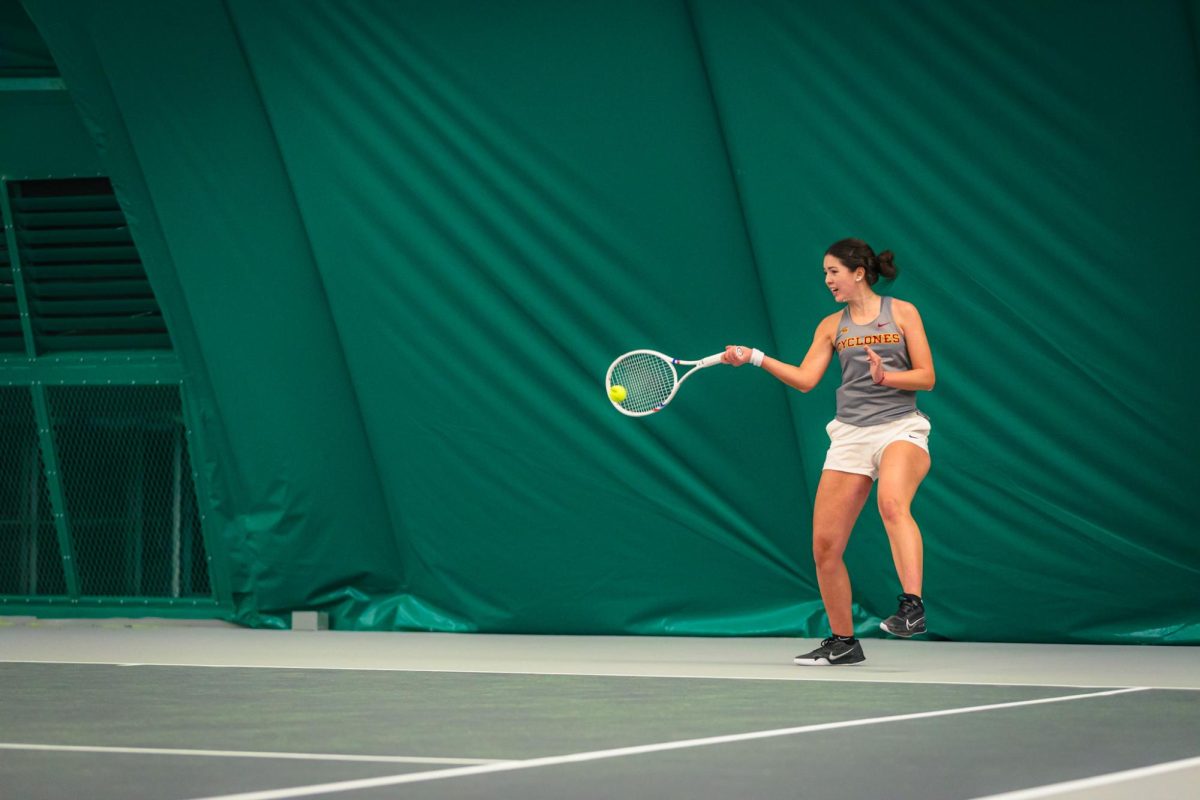Much ado about green wine
March 2, 2012
If students were asked to think about sustainable agriculture, how many would think to include wineries in the picture?
Trent Preszler, chief executive officer of Bedell Cellars, recently visited Iowa State and talked to students about his winery, which he explained in practice and operation was as green as the vineyards themselves.
Bedell Cellars is located in Long Island, N.Y., home to 3,000 acres of grapes that grow in an ocean-moderated climate. Not only is Long Island home to 3,000 acres full of wine-producing crops, but the region is home to some of the oldest farms in America. But what makes Bedell Cellars sustainable?
Forever in Farming is a hundred-year lease that protects the vineyards in Long Island from being developed into nonagricultural land.
“We know that there’s at least 3,000 acres of grapes in Long Island that for 100 more years can be nothing else except farms,” he said.
Bedell Cellars also is home to several different species of wildlife, which not only provides a healthy biodiversity, but a home for 30 to 50 species such as clovers, legumes, insects and bluebirds.
On top of sustaining the agriculture and biodiversity, Bedell Cellars takes the initiative to compost its vineyard waste, using the stems and skins from grapes as an organic fertilizer. In other means to reduce waste, the vineyard manufactures natural corks for its bottles. Extracted from the bark of an oak tree subspecies, the material is 100 percent renewable.
“After a layer of the bark is extracted, not only will the tree regenerate — this process employs over 2 million cork bark farmers in Portugal,” Preszler said.
In terms of social sustainability, Bedell Cellars uses human labor to plant the vines versus using machines. The bottles are made from postconsumer recycled glass and paper, and the artwork found on the labels is from local commissioned artists.
In an effort to spread their sustainable practices, Bedell Cellars also is currently working on certifying its wine as a sustainable project.
“It wasn’t good enough to just feel good that we’ve been growing grapes sustainably for 30 years,” Preszler says. “We also need to be able to prove to people in a serious way that they’re certified as sustainable and put a little sticker on our label and tell people that this what we’re doing and this is why they should care.”
Bedell Cellars is currently working on an enrollment program for other vineyard farmers who have the dedication to have their wine certified as sustainable. The program will include an evaluation of current agricultural practices, ecological compensation plans and plans to reduce soil and pesticide runoff.
For students interested, the following stores provide sustainably grown wine: Wheatsfield Cooperative, 413 Northwestern Ave., and Prairie Moon Winery, 3801 W. 190th St.






